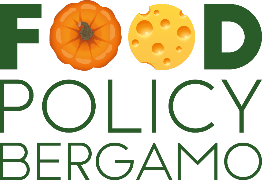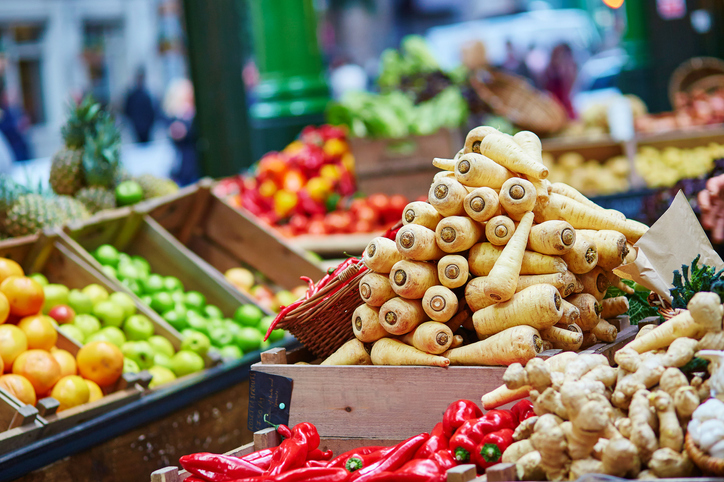Categories

Governance
Create a favourable context for effective action through the mapping of existing realities in the area, the exchange of information and the involvement of all actors in the local food system.
Governance
Encourage collaboration between agencies and municipal departments and seek the alignment of policies and programs that influence the food system in the various sectors and administrative levels, adopting and promoting a rights-based approach; the different options may include the provision of permanent staff at the municipal level, the reassignment of tasks and procedures and the redistribution of resources.
Promote the participation of interested parties at municipal level through political dialogue and, if appropriate, the appointment of a food policy advisor and / or the development of a platform that brings together the different stakeholders or a food council, and through education and awareness raising.
Identify, map and evaluate local initiatives and civil society movements dedicated to food in order to transform best practices into food programs and policies relevant, with the support of local research bodies or academic institutions.
Developing or reviewing urban food policies and programmes and ensuring that adequate resources are allocated to food policies and programmes within city administrations; reviewing, harmonising and consolidating municipal regulations; building strategic capacities for a more sustainable, equitable and healthy food system, balancing urban and rural interests.
Developing or improving multi-sectoral information systems for policy development and accountability, increasing the availability, quality, quantity, coverage, management and exchange of data on urban food systems, including formal data collection and data generated by civil society and other partners.

Sustainable diets
Promoting sustainable diets (healthy, safe, culturally appropriate, environmentally sound and rights-based) through activities such as the development of guidelines on healthy and sustainable nutrition, relevant programmes in education, health promotion and communication.
Sustainable diets
Promote sustainable (healthy, safe, culturally appropriate, environmentally sound and rights-based) diets through relevant programmes in education, health promotion and communication, with a focus on schools, care centres, markets and the media.
Combat non-communicable diseases associated with poor diets and obesity, paying particular attention, where necessary, to reducing the intake of sugars, trans-fatty acids, meat and dairy products, and increasing the consumption of fruit, vegetables and unprocessed foods.
Developing guidelines for sustainable diets in order to inform consumers, urban planners (specifically, in relation to public food supply), food service providers, retailers and food production and processing operators, and promoting communication and training campaigns.
Adapt standards and regulations to ensure access to sustainable diets and safe drinking water in public facilities such as hospitals, health and childcare facilities, workplaces, universities, schools, food and catering services, public offices and places of detention, and, to the extent possible, in private retail, wholesale distribution and markets.
Study regulatory and voluntary instruments for the promotion of sustainable diets, with the involvement of private and public companies, as appropriate, through marketing, advertising and labelling policies; economic incentives or disincentives; streamlining regulations governing the marketing of food and non-alcoholic beverages to children, in compliance with World Health Organisation recommendations.
Promote joint action by the food and health sectors to implement people-centred strategies for healthy lifestyles and social inclusion.
Invest in and work towards achieving universal access to safe drinking water and adequate sanitation, with the participation of civil society and various partnerships as appropriate.

Social and economic justice
Supporting weaker groups through the creation of community canteens and kitchens, food banks and the promotion of social inclusion activities, such as shared vegetable gardens.
Social and economic justice
Use food and cash transfers, and other forms of social protection (food banks, community canteens, emergency food pantries, etc.) to ensure access to healthy food for vulnerable segments of the population, taking into account the specific beliefs, cultures, traditions, habits and food preferences of different communities, with respect for human dignity and in order to avoid further marginalisation.
Redefine school lunch programmes and other institutional food services to provide healthy, locally or regionally sourced, seasonal and sustainable food.
Promote decent employment for all through fair economic relations, fair pay and improved working conditions in food and agriculture, with full inclusion of women.
Encourage and support economic and social solidarity activities, paying particular attention to food-related activities that promote sustainable livelihoods for marginalised segments of the population at different levels of the food chain and facilitating access to safe and healthy food in urban and rural areas.
Promote networking and support civil society activities (such as community gardens and canteens, social canteens, etc.) aimed at creating social inclusion and providing food for marginalised groups.
Promote participatory education, training and research as key elements to consolidate local action to increase social and economic justice, promote rights-based approaches, reduce poverty and promote access to adequate and nutritious food.

Food production
Sostenere le filiere alimentari corte e i piccoli produttori, l’utilizzo di concimi derivati da rifiuti alimentari, di acque reflue riciclate ed energia generata da rifiuti.
Food production
Promote and consolidate urban and peri-urban food production and processing through sustainable approaches and integrate urban and peri-urban agriculture into municipal resilience programmes.
Promote coherence in interactions between cities and food production and processing in neighbouring rural areas, with a focus on small-scale producers and family farms, and the empowerment and legitimisation of women and young people.
Adopt a holistic approach to ecosystems and integrated planning and management for land use, cooperating with urban and rural authorities and other natural resource management agencies, combining land characteristics, e.g., with risk reduction strategies, to increase opportunities for agro-ecological production, biodiversity and agricultural soil protection, climate change adaptation, tourism, recreation and other ecosystem services.
Protect and enable secure access to and ownership of land for sustainable food production in urban and peri-urban areas, including land for local horticulturists and small-scale producers, e.g. through land credit banks or local land trusts; ensure access to municipal land for local agricultural production and integration with land-use and urban development plans and programmes.
Encourage the provision of services for food producers in and around cities, including technical training and financial assistance (credit, technology, food safety, market access, etc.) for the creation of a multi-generational and economically sustainable food system that promotes practices such as the use of fertilisers derived from food waste, recycled wastewater, energy generated from waste, etc., while ensuring that these activities do not conflict with human consumption.
Support short food supply chains, producer organisations, producer-to-consumer networks and platforms, and other market systems that integrate the social and economic infrastructure for an urban food system linking urban and rural areas. This could include civil society and social and solidarity economy initiatives as well as alternative market systems.
Improve the management and reuse of (waste) water in agriculture and food production through policies and programmes that adopt participatory approaches.

Food distribution
Ensure access to fresh and affordable food in low-income and underserved neighbourhoods through planning of low-cost logistics systems and develop policies and programmes to support municipal public markets (including farmers’, informal, wholesale and retail markets, restaurants, etc.).
Food distribution
Assessing food flows to and within cities to ensure access to fresh and affordable food in low-income and underserved neighbourhoods, while fostering sustainable transport and logistics to reduce CO2 emissions through alternative fuels or means of transport.
Promoting the improvement of food storage, processing, transport and distribution technologies and infrastructures, linking peri-urban areas with neighbouring rural areas, in order to ensure the consumption of seasonal food and reduce food insecurity, loss and waste of nutritional elements and foodstuffs, paying particular attention throughout the supply chain to medium and small food businesses as a source of decent and stable employment.
Assess, review and/or consolidate food control systems through the implementation of a system of local food safety standards and regulations that 1) ensure that producers and suppliers in the food supply chain operate responsibly; 2) remove market access barriers for family farms and small producers; 3) integrate food safety, health and environmental protection.
Review public procurement and trade policies in order to facilitate short supply chain food supply through inter-city linkages and to ensure the supply of healthy food, while fostering labour market access, fair production conditions and sustainable production for the most vulnerable groups of producers and consumers, harnessing the potential of public food supply to achieve the right to food for all.
Develop policies and programmes to support municipal public markets, including farmers’ markets, informal markets, wholesale and retail markets, restaurants and other food distribution entities, recognising the diversity of approaches of different cities to public and private operators within the market system.
Improve and extend market system infrastructure linking urban buyers to urban, peri-urban and rural retailers, while fostering social cohesion and trust, supporting cultural exchange and ensuring sustainable livelihoods, especially for women and young entrepreneurs.
Recognise the contribution of the informal sector in urban food systems (in terms of food supply, job creation, promotion of local diets and environmental management) and ensure appropriate support and training in areas such as food safety, sustainable diets, waste prevention and management.

Food waste
Favorire la diminuzione delle eccedenze e perdite lungo tutta la filiera alimentare aumentando la consapevolezza sulla necessità di ridurre lo spreco e consentire il recupero e la ridistribuzione di alimenti sicuri e nutritivi nel circuito di solidarietà sociale.
Food waste
Bring together food system actors to assess and monitor the reduction of food loss and waste at all stages of the city/regional food supply chain (production, processing, packaging, safe food preparation, presentation and handling, reuse and recycling), ensuring holistic planning and design, transparency, accountability and policy integration.
Raise awareness of food waste and discards through targeted events and campaigns; identify focal points such as educational institutions, social markets, farm shops and other solidarity or circular economy initiatives.
Collaborate with the private sector, research and educational institutions and community organisations to develop and review, as appropriate, municipal policies and regulations (e.g. procedures, decoration and classification criteria, expiry dates, etc.) to prevent food waste or to safely recover food and packaging through a system that promotes food utilisation and not food waste.
To promote, where applicable, the recovery and redistribution of safe and nutritious food for human consumption, subject to the risk of loss, discard or waste, from the production, manufacturing, retail, catering, wholesale and hospitality sectors.


